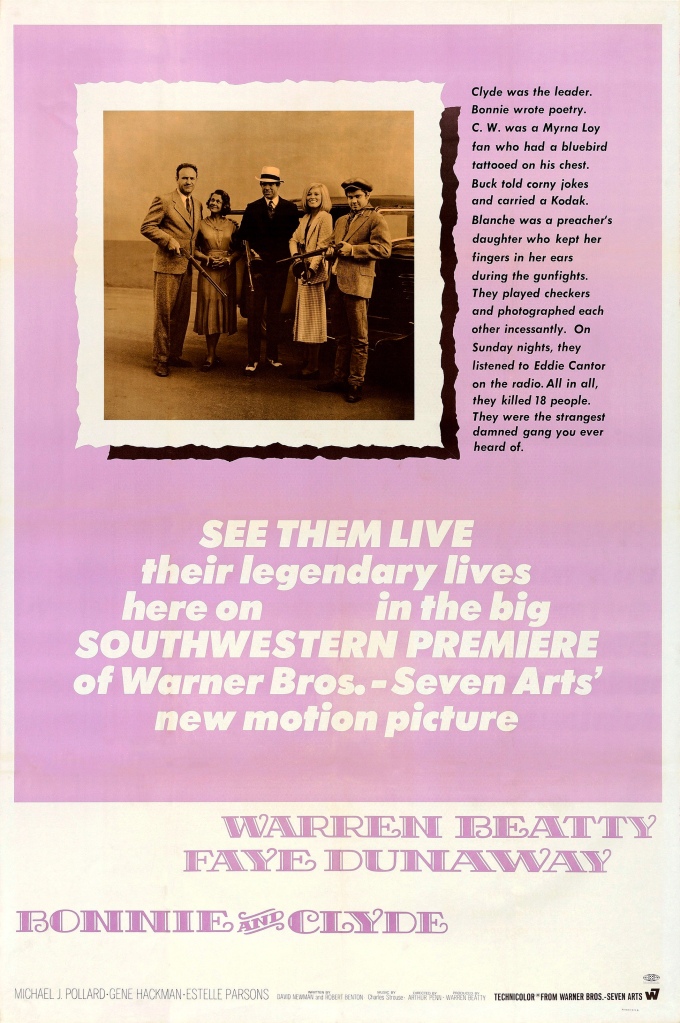Some directors in America had been inspired but the various methods of the French New Wave, such as focus on realism, hand-held camera work and improvised dialogue. The focus on serious plots had fallen after the decline of Hollywood, and the French New Wave galvanised some young American directors to take a more causal, relaxed and fun approach to filmmaking. This inspiration also culminated in rapid shifts in the tone of the film and abrasive/rough editing.
David Newman and Robert Benton were both screenwriters who had no particular style of screenwriting, or a focus on any particular genre, tone or motif. There was no recognisable aspect of their scripts that associated the film with the screenwriters. They took inspiration from the French New Wave in their approach to fun, causal film script as with often improvised dialogue or realistic dialogue. For example, they were both inspired by the unconventional relationship between the characters Patricia and Michel in Godard’s Breathless (Godard, 1960) In fact, Bonnie’s poem in the film mirrors the exchange of letters between Jim and Catherine in Jules et Jim (Truffaut, 1962) When writing the film, French New Wave director Francois Truffaut screened the film Gun Crazy (Joseph Lewis, 1950) as he had loved it. This also led to Warner Bros. Advertising the film as a violent crime genre film and star vehicle. It was the two scriptwriters who brought Penn onto the film when Truffaut himself could not.
A director who took inspiration from the French New Wave was Arthur Penn. He was a director who made his name through Bonnie and Clyde (Arthur Penn, 1967), and was not recognised for many other productions. He was a director-for-hire who did not have any recognisable motifs of his own, instead taking his ideas from the French New Wave style of directing, with a focus on realism and deliberately casual way of filmmaking. He favoured shooting on location with small production teams, many of his films displaying American myths/culture, Classic American genres and ‘outsider’ characters.
Dede Allen is considered an auteur Hollywood director, taking inspiration from the French New Wave and stylising jump cuts used for emotional effect, audio overlaps, placing continuity editing at a low priority and instead focusing on expressing the body-language of characters through cutting and conveying the plot in a nuanced way.
Warren Beatty, the actor who played Clyde Barrow in the film, also produced it and made up contributed attributions to the script through their improvised dialogue. He had wanted Clyde to be presented as a flawed protagonist, an anti-hero, and played the character that way. As producer, he made contributions that made the film what it was, an imperfectly produced film taking heavy inspiration from the French New Wave style of filmmaking. He hired Newman and Benton, selected most of the cast and oversaw the script’s development. His role in production reflects the rise of ‘star-auteurs’ in the 1960s, for example Jack Nicholson, who also directed and produced films.

You must be logged in to post a comment.